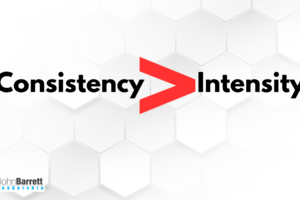Listen Then Lead
Great leadership isn’t just about making decisions or casting a compelling vision; it’s about genuinely connecting with and understanding the people you lead. One of the most overlooked yet powerful skills you can develop as a leader is the ability to actively listen before you speak. Mastering this skill isn’t just a nice-to-have—it’s a game-changer that builds trust, uncovers hidden insights, and leads to wiser, more effective decisions.
Why Listening Is Your Superpower In Leadership
Listening might seem like a passive act, but in leadership, it’s anything but. As Stephen R. Covey wisely pointed out, “Most people do not listen with the intent to understand; they listen with the intent to reply.” If you jump straight to responding, you’ll likely miss the goldmine of insights and connections from truly listening to your team. Active listening is about more than just hearing words; it’s about being fully present, giving your undivided attention, and demonstrating genuine empathy. It’s not just about nodding along or waiting for your turn to speak; it’s about making the speaker feel valued, respected, and heard.
The Power Of Pausing
Think about Abraham Lincoln, a leader known for his thoughtfulness and deliberate communication style. Lincoln often paused before responding, using those moments to reflect and respond with wisdom rather than reacting on impulse. By adopting this approach, you, too, can navigate challenging situations with a steady rhythm and a calm mind.
Listening: Your Gateway To Empathy
Empathy is at the heart of effective leadership, and it all starts with listening. When you take the time to understand your team members’ perspectives, emotions, and needs, you’re able to forge deeper, more authentic relationships. My mentor, Dr. John C. Maxwell, nailed it when he said, “Leaders touch a heart before they ask for a hand.” By listening first, you show that you care about your people, creating a culture where trust and loyalty can thrive.
Think about Howard Schultz, former CEO of Starbucks, as an example. Schultz frequently held open forums where he would genuinely listen to his employees’ concerns and ideas. Instead of dominating the conversation, he focused on understanding his team. This active listening approach not only empowered his employees but also drove significant improvements in the company’s operations and culture. By committing to listening first, you can drive similar growth and success within your own organization.
Final Thoughts
Remember, great leaders don’t just talk—they listen. You have the opportunity to create space for others to share, pause to reflect, and respond with empathy and insight. The next time you’re in a conversation, challenge yourself to actively listen before you speak. Your team will notice the difference, and your influence will level up. Commit to being a leader who listens first because when you do, you don’t just hear words—you build connections, inspire action, and lead with greater impact.
One of the workshops I offer is called “Listening & Leading.” It’s designed to lay out an entire framework for what I call “The Successful Listening Zone.” It’s a three-part process that helps leaders understand how to listen effectively. Reach out today to bring it to your team or organization.










